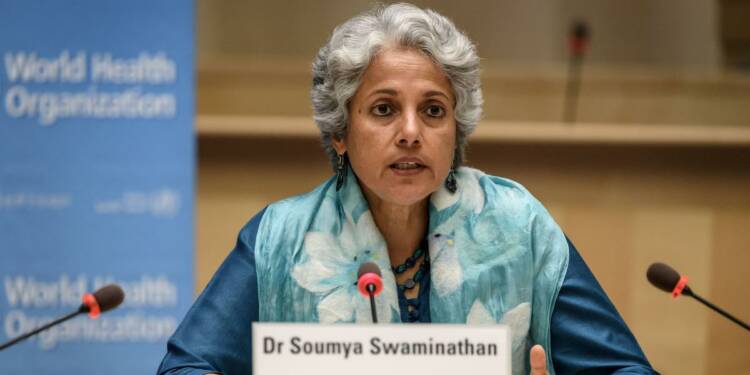India is leading the fight against Covid-19 across the world. Currently, at least two different nasal vaccines against Covid-19 infections are undergoing trials in the country. Both Bharat Biotech and Serum Institute of India (SII) are developing pathbreaking nasal vaccines, and the former’s Phase 1 trials have already shown promising results. In latest news, the World Health Organisation’s chief scientist Soumya Swaminathan has vouched for Made in India nasal vaccines and has said that they could be a gamechanger especially for children.
“Some of the nasal vaccines that are going to be made in India could be game changers for children — easy to administer, will give you local immunity in the respiratory tract,” the WHO’s top scientist said in an exclusive conversation to CNN-News18. Hyderabad-based Bharat Biotech is developing BBV154 nasal vaccine for children in collaboration with Washington University School of Medicine (WUSM). According to Jagran, the first phase trials were reported to have proven successful and the subsequent second and third phase of nasal vaccine’s trials are currently ongoing.
Serum Institute of India (SII) is also testing the efficacy of intranasal COVI-VAC Covid vaccine in collaboration with New York-based vaccine maker Codagenix. So far, India has not opened vaccination for children below the age of 18. This has raised concerns among many that as the adult population gets vaccinated, subsequent waves of the pandemic may end up disproportionately affecting children. However, the nasal vaccines developed in India promise to ensure that such a situation does not arise.
On its part, the Centre on Saturday said children are not immune from the infection, but stressed that the impact is minimal. “If children get affected by Covid, either there will be no symptoms or there will be minimal symptoms. They do not require hospitalisation generally,” Niti Aayog (health) member VK Paul said during the press briefing of the Union health ministry.
Prime Minister Narendra Modi, in a recent meeting with state and district officials, had asked them to collect data on the infection transmission and severity among youth and children. This suggests that the Centre is preparing to vaccinate children as soon as vaccines suited for them are made available.
The nasal vaccines which India has to offer to the world will not just be a gamechanger for children, but will also drastically cut down transmission among adults. It is therefore not surprising that India’s nasal vaccine push has earned praises from WHO’s top scientist.
























